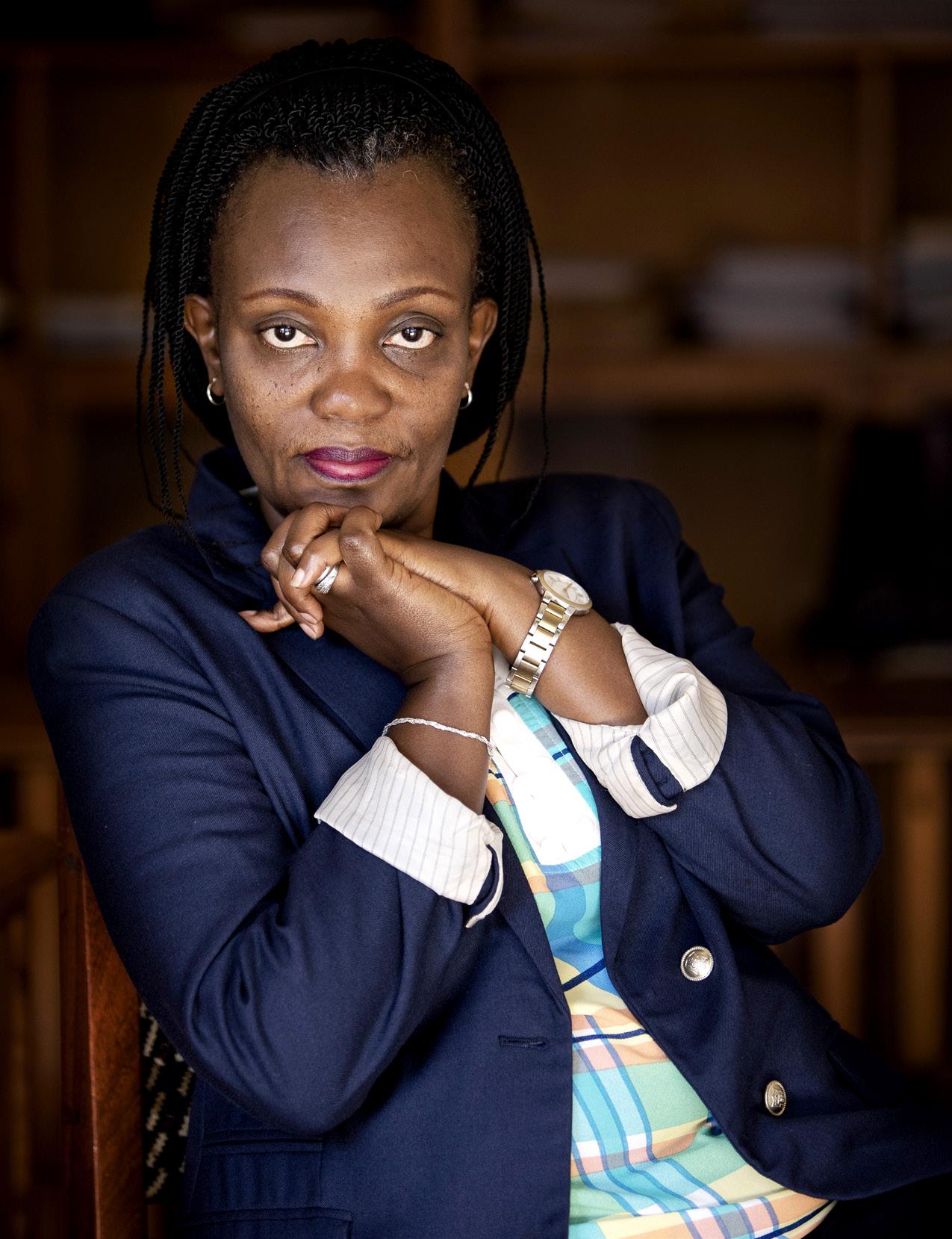
3 minute read
Difficult being a parent and a PhD
Obedience in vicious times
– If I had not become a doctoral student in Gothenburg, I would never have completed my PhD. Being away from my children for long periods, however, was a high price to pay. These are the words of Charline Mulindahabi, the Head of the Department of Political Science and International Relations at the University of Rwanda, who defended her doctoral thesis at the School of Global Studies in 2015.
Advertisement
“OBEDIENCE” IS A positively charged word in Rwanda. But it was also obedience that made many people take part in the 1994 genocide, when one million Tutsis were murdered in a hundred days.
– What I wanted to investigate was whether the concept has changed since then, says Charline Mulindahabi when I meet her at the Department of Political Science and International Relations in Huye. Is it actually good to be obedient if it leads to murder? To find out, I conducted in-depth interviews with four categories of people: perpetrators, survivors, people in positions of power and people who were neither one nor the other. I concluded that people recognize that obedience is something horrible when it has such terrible consequences as mass murder, but that in other contexts it is a good thing. It is as if they want to redeem the concept and protect it from negative associations.
Charline Mulindahabi began her doctoral studies at the School of Global Studies in 2010. This entailed periods of 5–6 months in Gothenburg, interspersed with shorter trips to her home in Huye.
– MY HUSBAND, who was also a doctoral student, took care of our three children, who were between seven and three years of age. He defended his doctoral thesis before me, however he managed that, but I would never have been able to concentrate on my studies if I had been living at home. However, I missed out on a lot when my children were young. When I quarrel with my daughter, who is now sixteen years old, she points out that I do not have the right to say anything, as I was gone so much when she was little. That makes me feel guilty. So even though I find it very important to gain experience from other countries, it would be good if doctoral studies could be organized so that you are only away from home for short periods of time.
The genocide is commemorated throughout Rwanda. For example, an entire week in April is dedicated to the disastrous event.
Many children are traumatized by the genocide, even though it happened 25 years ago, says Charline Mulindahabi.
– They were not part of it themselves, but it is of course a terrible event in their family’s history, something that is not really possible to understand.
AS HEAD OF Department, Charline Mulindahabi devotes a great deal of her time to administration, including coordinating a master’s programme on local government. But she has also been involved in a collaboration between universities in Uganda, Kenya and Tanzania about investigating the endangerment of humanities in Higher Education.
– Practically all the investment in education and research goes to science, medicine and technology. The humanities are not seen as important, neither by the government, the students, nor their parents. We are trying to change that by offering new combinations of subjects. We are trying to create programmes where students can combine economics and history or law and languages, for example. The partnership between different universities means that we can encourage one another and perhaps come up with new ways to strengthen the humanities. This is important, particularly for Rwanda with its traumatic history.
Charline Mulindahabi Title of her doctoral thesis from 2015: Obedience troubled? Exploring the meanings of obedience in the post-genocide Rwanda. Works as: Head of Department of Political Science and International Relations, School of Governance, University of Rwanda. Family: Husband and three children. Lives in: Huye, Rwanda.










